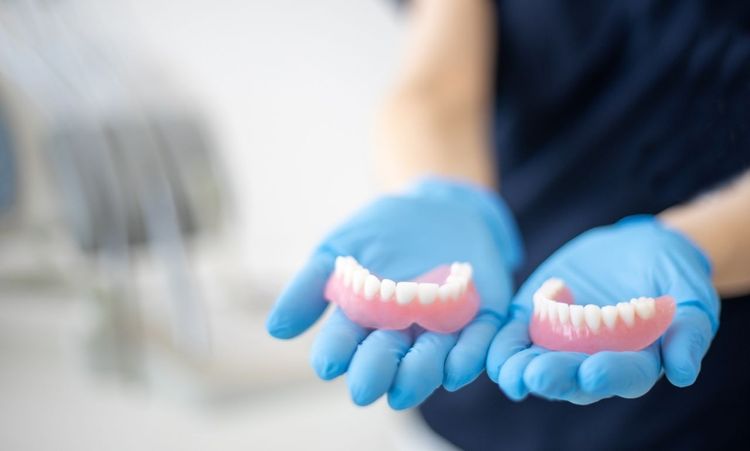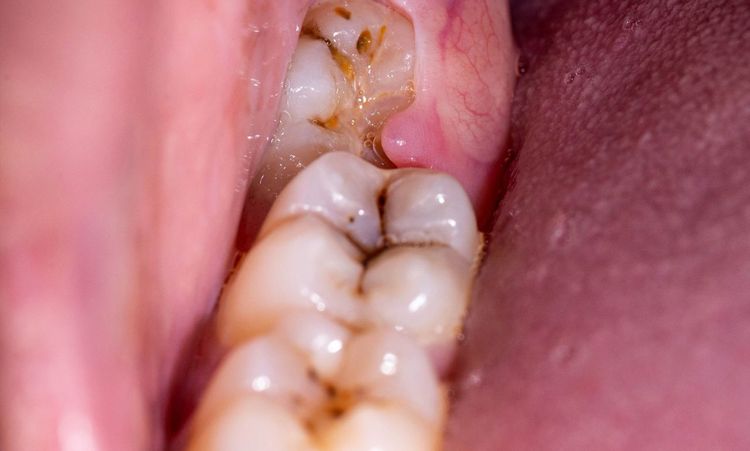The cold season hits, and everyone starts popping vitamin pills like candy. Your neighbor swears vitamin D kept her healthy all winter. Your doctor might have mentioned checking your levels too. Health stores proudly display vitamin D supplements front and center these days. The "sunshine vitamin" has gained quite a reputation as an immune system champion. But does it really work? Can taking vitamin D actually keep you from getting sick? The answer isn't as straightforward as you might hope. Many factors come into play when considering vitamin D's role in preventing illness. Let's break down what science actually tells us about this popular supplement.
What is vitamin D?
Vitamin D stands apart from other vitamins in a unique way. Your body can actually produce it when sunlight hits your skin. This process transforms a cholesterol derivative into vitamin D3. Foods like fatty fish and egg yolks contain small amounts naturally. Manufacturers often add it to milk, cereal, and orange juice too.
The vitamin comes in several forms. Vitamin D2 (ergocalciferol) comes from plant sources. Vitamin D3 (cholecalciferol) comes from animal sources and sun exposure. Your body must convert either form through several steps. The liver changes it to 25-hydroxyvitamin D first. Then the kidneys transform it into the active form called calcitriol.
Vitamin D helps your body absorb calcium from food. This makes it crucial for bone health throughout life. Research has revealed its importance beyond just strong bones, though. Almost every cell in your body has vitamin D receptors. These receptors suggest widespread functions throughout your systems. Scientists have found links to immune function, mood regulation, and inflammation control.
Regular sun exposure provides vitamin D for many people. However, modern indoor lifestyles often limit this natural source. Factors like skin color, location, and season affect how much you produce. Darker skin requires more sunlight to make the same amount. Northern locations receive less intense sunlight year-round. Winter months provide less sunlight exposure for everyone.
What to Consider Before Taking Vitamin D
Before rushing to the supplement aisle, several factors deserve your attention. Not everyone needs extra vitamin D. Your current levels matter most when making this decision. A simple blood test can reveal where you stand. Doctors measure the 25-hydroxyvitamin D concentration in your blood. This test provides the most accurate picture of your status.
Your risk factors play an important role too. Older adults absorb less vitamin D from sunlight. People with darker skin produce less vitamin D from the same sun exposure. Those living in northern regions face natural limitations. Indoor workers miss out on regular sun contact. These situations might justify supplementation.
Dosage requires careful consideration as well. The recommended daily allowance varies by age. Most adults need between 600-800 IU daily. Higher doses might help correct deficiencies under medical supervision. But megadoses can create serious health problems. More isn't always better with this nutrient.
Timing your intake matters for best absorption. Vitamin D dissolves in fat rather than water. Taking it with a meal containing some fat improves absorption significantly. Morning doses work well for most people. Some find evening doses disrupt sleep patterns slightly.
Why is vitamin D in the news?
Vitamin D grabbed headlines during the COVID-19 pandemic for good reason. Researchers noticed something interesting in patient data. Those with lower vitamin D levels often experienced worse outcomes. This observation sparked intense scientific interest. Could this simple nutrient help fight a deadly virus?
Studies have examined this connection from multiple angles. Some research found lower infection rates among those with adequate levels. Other studies noted reduced severity in vitamin D-sufficient patients. The nutrient might help regulate immune responses during infection. It potentially prevents the dangerous "cytokine storm" that damages lungs.
Beyond COVID-19, vitamin D research touches many health areas. Scientists have studied its effects on seasonal flu for years. Some trials show reduced respiratory infection rates with supplementation. Others find benefit only in those who start deficient. The evidence shows promise but remains somewhat mixed.
Cancer prevention studies have yielded conflicting results too. Early research suggested strong protective effects. More rigorous trials have shown more modest benefits. Heart disease research follows a similar pattern of mixed findings. Scientists continue investigating these connections with great interest.
How do you know if you're vitamin D-deficient?
Identifying vitamin D deficiency proves tricky without testing. Many symptoms appear vague or overlap with other conditions. Fatigue tops the list of common complaints. You might feel generally tired despite adequate sleep. Muscle weakness can develop, especially in the legs. Simple tasks might leave you unexpectedly exhausted.
Bone pain signals more advanced deficiency in many cases. The discomfort typically affects the lower back first. Hip and rib pain commonly follows as deficiency persists. These symptoms develop because bones lack proper mineralization. Your skeleton slowly weakens without adequate vitamin D.
Hair loss sometimes occurs with severe deficiency. Wounds might heal more slowly than usual. Recurring infections could signal compromised immune function. Depression symptoms appear more frequently in deficient individuals too. These diverse symptoms reflect vitamin D's widespread roles.
Testing provides the only definitive answer about your status. The 25-hydroxyvitamin D blood test gives clear results. Levels below 20 ng/mL indicate deficiency by most standards. Levels between 20-30 ng/mL suggest insufficiency. Optimal levels generally fall between 30-50 ng/mL. Values above 50 ng/mL require careful monitoring.
What happens if you do not have enough vitamin D
Vitamin D deficiency creates both immediate and long-term problems. Children develop rickets when severely deficient. Their bones grow soft and can bend or break easily. This condition has returned in some areas despite being preventable. Proper supplementation eliminates this risk entirely.
Adults develop osteomalacia from significant deficiency. Bones become soft, causing pain and increasing fracture risk. Muscle weakness commonly accompanies these bone changes. Simple activities become difficult or painful. Correcting the deficiency reverses many of these symptoms.
Immune function suffers without adequate vitamin D. Research shows increased respiratory infection risk. Your body struggles to mount effective responses against invaders. Recovery times from illness may lengthen significantly. These effects explain the interest in vitamin D for infection prevention.
Heart health depends partly on sufficient vitamin D too. Blood pressure tends to rise with deficiency. Inflammation increases throughout the cardiovascular system. These changes contribute to heart disease risk over time. Maintaining adequate levels helps protect heart function.
Common side effects of too much vitamin D
Elevated blood levels
Taking excessive vitamin D supplements can cause toxicity. Your blood levels may climb dangerously high. The medical term for this condition is hypervitaminosis D. This problem rarely occurs from sun exposure or food sources. Supplements present the main risk for overdose.
Laboratory testing reveals elevated 25-hydroxyvitamin D levels. Values exceeding 100 ng/mL generally indicate toxicity. Some people show symptoms at lower levels. Individual sensitivity varies considerably. Regular monitoring prevents problems during high-dose therapy.
Elevated blood calcium levels
Vitamin D toxicity commonly raises blood calcium levels too. This condition, called hypercalcemia, creates various symptoms. Excessive thirst often appears first. Frequent urination typically follows. You might notice a metallic taste in your mouth. These symptoms warrant immediate medical attention. Left untreated, hypercalcemia damages multiple systems. Heart rhythm problems can develop. Kidney stones form more easily. Blood vessel calcification accelerates. These complications highlight the importance of proper dosing. More vitamin D isn't necessarily better.
Gastrointestinal symptoms
Digestive distress signals vitamin D toxicity in many cases. Nausea commonly occurs even with moderate overdose. Vomiting follows in more severe cases. Abdominal pain can become intense and persistent. Appetite often decreases significantly. These symptoms may develop gradually over weeks.
Constipation frequently accompanies these other digestive issues. The bowels move more slowly with elevated calcium levels. Water absorption from the intestines increases. These changes result in hard, difficult bowel movements. Staying hydrated becomes especially important.
Altered mental status
High vitamin D levels can affect brain function too. Confusion might develop, particularly in older adults. Difficulty concentrating interferes with daily activities. Memory problems may emerge or worsen. These cognitive changes sometimes precede other symptoms. Family members often notice these changes first.
Extreme cases can progress to more serious mental status changes. Delirium occasionally develops with severe toxicity. Hallucinations occur in rare instances. These serious symptoms require emergency medical care. Fortunately, they resolve when vitamin D levels normalize.
Kidney complications
Your kidneys bear the brunt of vitamin D excess. These organs process calcium and vitamin D metabolites. Excessive amounts overwhelm their filtering capacity. Kidney function may decline as a result. Damage sometimes becomes permanent with prolonged exposure. Calcium deposits can form within kidney tissue. These deposits interfere with normal function. Kidney stones develop more frequently too. Pain in the back or side may signal these complications. Blood and urine tests help monitor kidney health during supplementation.
What causes vitamin D deficiency?
Limited sun exposure tops the list of deficiency causes. Modern lifestyles keep many people indoors most days. Office work, commuting, and indoor recreation limit sun contact. Sunscreen blocks vitamin D production when outdoors. These factors combine to reduce natural vitamin D synthesis.
Dietary factors contribute significantly to deficiency risk. Few foods naturally contain substantial vitamin D. Fish like salmon and mackerel provide good amounts. Egg yolks and mushrooms offer smaller quantities. Most people cannot meet requirements through diet alone. Fortified foods help but often prove insufficient.
Certain medical conditions increase deficiency risk dramatically. Crohn's disease, celiac disease, and cystic fibrosis reduce absorption. Kidney and liver diseases impair vitamin D activation. These conditions require careful monitoring and usually supplementation. Dosage often exceeds typical recommendations.
Medications sometimes interfere with vitamin D metabolism. Anti-seizure drugs accelerate breakdown in the liver. Corticosteroids reduce calcium absorption and vitamin D effectiveness. Cholesterol-lowering statins may alter vitamin D function slightly. Always discuss supplements with your doctor when taking medications.
Conclusion
Vitamin D plays critical roles throughout your body. The evidence linking it to immune function continues growing. Some studies show reduced illness with adequate levels. Others demonstrate less severe symptoms during infections. Yet the picture remains incomplete in many ways.
Should you take vitamin D supplements? It depends on your situation. Testing provides the best starting point for decisions. Those with true deficiency benefit most from supplementation. People with borderline levels might see modest benefits. Those already sufficient gain little from additional intake.
Talk with your healthcare provider about your specific needs. Consider your risk factors, symptoms, and lifestyle honestly. Remember that vitamin D represents just one part of immune health. Sleep, exercise, diet, and stress management matter tremendously too. No single supplement provides complete protection against illness.
The vitamin D story continues evolving with ongoing research. Scientists explore its effects on various conditions daily. Our understanding grows more nuanced with each study. The simple question "Can vitamin D keep you from getting sick?" turns out to have a complex answer: Sometimes, for some people, in some situations.




